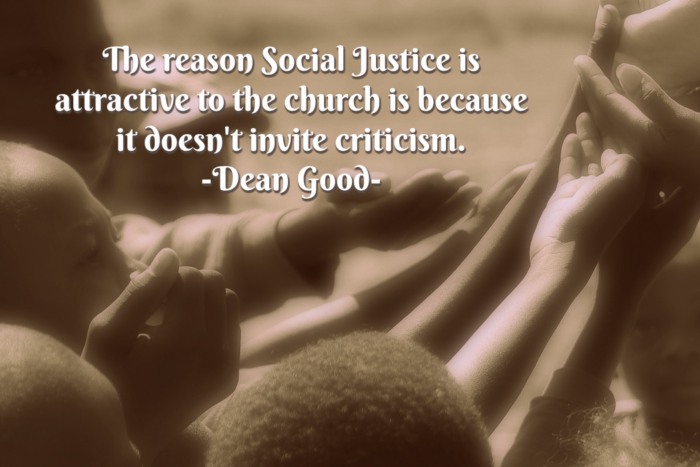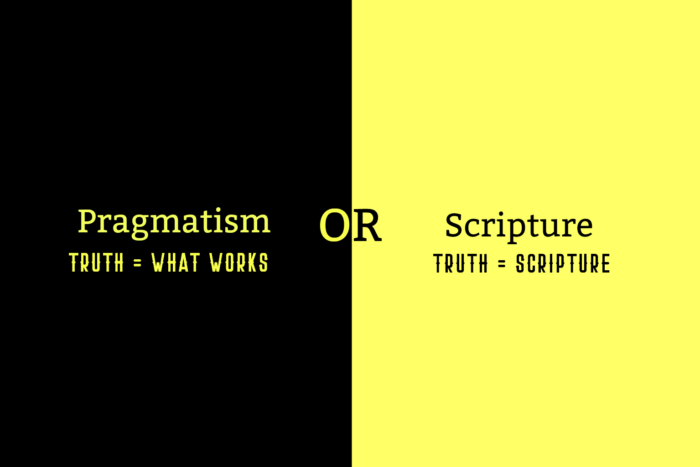Don’t Be Just Another Fan
If you are on Facebook, you may have noticed that I have been sharing the posts of others less and less on the Growing4Life Facebook page. Why is this? Do I think I am the only one who is right? By all means NO. I don’t think this at all. And I am truly grateful for those who have the courage to stand up for the truth. I am just so hesitant to promote others because, in this strange new world, I never know where someone will end up and I don’t want to be responsible for promoting someone that leads another astray.
I have been thinking more of this because of what I have observed in the recent days: We not only have false teachers who gain huge followings of undiscerning people, we also have teachers who are teaching the truth in the wrong way who have gained huge followings. They are snide, prideful, and rude. They are careless and make jokes about things they shouldn’t. They are not sober-minded nor are they handling the Word with the care and awe with which it deserves. They write about certain false teachers, but leave others free to do their own thing. If a teacher is backed by a favored denomination or favored for some other reason, blatant evidence is ignored and we hear…nothing.
Does that mean we shouldn’t read and learn from them? No, of course not. But I want to remind you of how careful we must be when we follow anyone. We should never be an undiscerning fan and simply imbibe what someone says (and, yes, this applies to Growing4Life and what I write here, as well). I can’t stress how important this is. We must take responsibility for our own beliefs about God, His Word, and what is going on in the world around us.
Of course, most of us don’t want to do this because this means work. And we don’t have the time or the will or the desire to do the work necessary. We are tired, busy, or lazy.
Hopefully there are a few of you out there who care enough to do the work to study. And it is for those few that I offer the following tips to get started in discerning on your own rather than simply ingesting anything a favorite author or blogger has to say.
1. Read, study, and memorize your Bible. I know I say this all the time but that is because it is the most crucial component to being a godly Christian with proper discernment in this alarming church culture.
2. Do not assume that just because something or someone is labeled “Christian” they actually are. It is almost unbelievable how much self-worship has been cloaked as “Christian”. This should be the first test: What does this person teach about self? Are they promoting the way of the cross or the way of self-realization and self-glory?
3. Don’t follow a favored author or blogger without discernment. Pay attention to what they are posting. This doesn’t mean you stop following them at every small disagreement. We will never agree fully with everyone. But we must not only watch for accuracy in their posts, but also for attitudes and character. The key is that we don’t want to ever let down our guard as we choose authors, teachers, and bloggers to follow–even those who specialize in “discernment”.
4. Don’t let charisma trick you into believing someone. I could write a whole post on this and maybe someday I will. If you put two teachers side by side and the first is teaching truth in a rather dry and matter-of-fact way and the second is taking one Bible verse and then expounding on it falsely but with charisma and excitement, most Christians will choose the second. Certain people have what is appropriately called magnetism and we are drawn to them. It explains why so many false teachers have been wildly successful. It is critical that we don’t let this be our determination of who we follow. Charisma is utterly and completely irrelevant to truth.
5. Read and study the works of old preachers and pastors who wrote before the chaos that is the church today. We tend to be people who are obsessed with the “latest and greatest”. And we have probably been trained that way by Apple and Microsoft over these past twenty years. But I have found that, when it comes to spiritual material, the latest is rarely the greatest. Some of the best works were written over a hundred years ago and they are free from the politically correct garbage and the self-worshiping and self-exalting filth that clutters almost every modern-day offering. I recommend you start with J.C. Ryle and Charles Spurgeon. They are both not only generally solid, but they are easy to read, easily found online for free, and their books are often only .99 on Kindle.
6. Determine to only be loyal to God’s Word. While some people are fickle and easily move on to the next church, teacher, or author, many of us are super loyal. We find someone we trust and we never think about it again. I am so incredibly saddened to say that the days for this are over. I have seen many trusted pastors, authors, and bloggers start to go a wrong direction. It is subtle and almost imperceptible at first. While I don’t want to encourage an attitude of mistrust or constant skepticism, I do recommend a healthy dose of discernment for anyone we choose to follow. Only the Bible deserves our loyalty in full.
7. Pray. Ask the Lord to help you in this treacherous time. Ask for courage and strength and abundant wisdom. I have never seen such a time where truth is mixed with error in such a subtle way. I have never seen a time where Satan’s lies of self-exaltation, self-gratification, and self-glory have been so subtly cloaked and taught as “Christianity”. I have never seen a time when those who call themselves Christians are swallowing the lies and being deceived by the thousands. And I have never seen a time when those who would teach biblical truth would be so ostracized, persecuted, and outcast.
—————————————
You know, I understand why people want to just ignore all of this and remain in ignorance. Some days I wish for that, too. But as believers who have the opportunity and responsibility to impact our children, grandchildren, fellow believers, co-workers, and all others around us, for the cause of Christ we cannot afford to make the choice to put our heads in the sand.
Yes, it can be unpleasant and distressing. But we must be sure we are following and teaching a biblical faith in order to make a difference for Christ. We must keep our eyes and hearts focused on God and His Word. For only from this source will we receive the pure and unadulterated truth. Don’t blindly follow any human. Don’t be just another fan.









